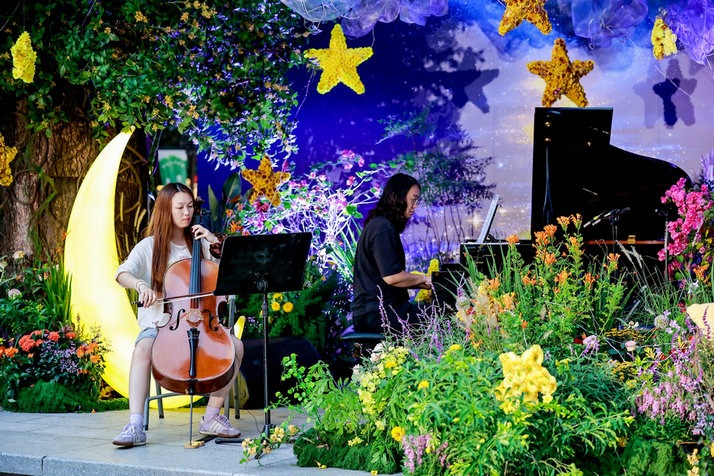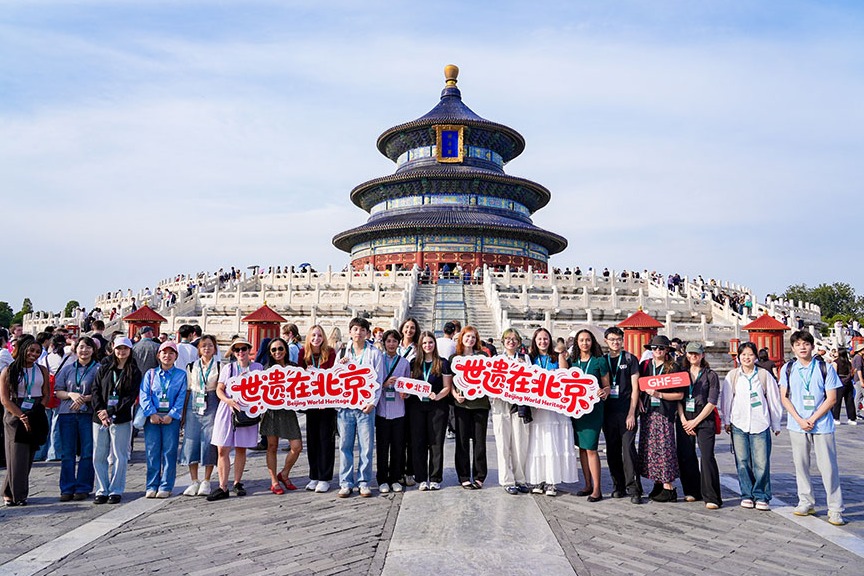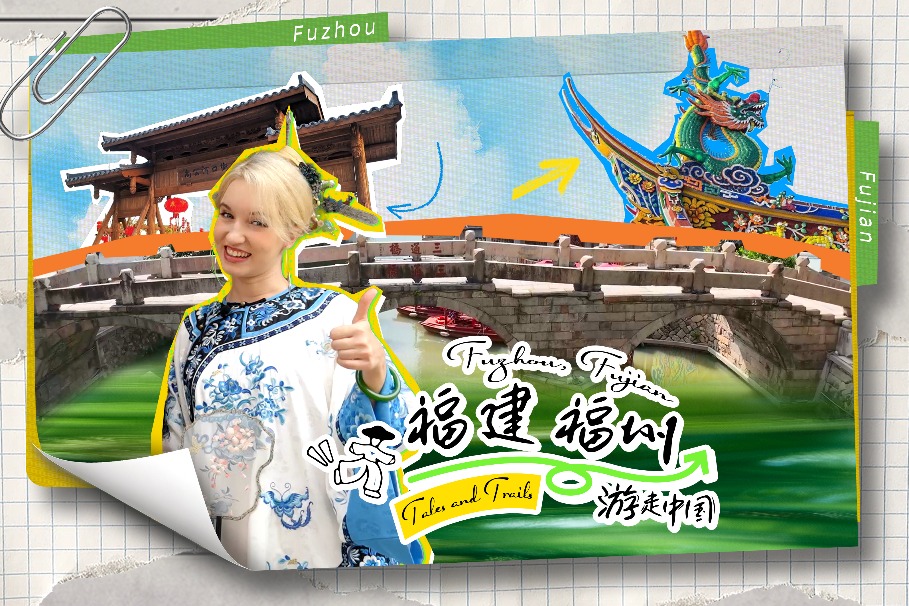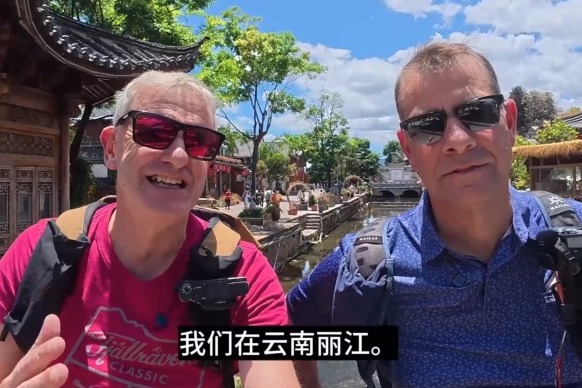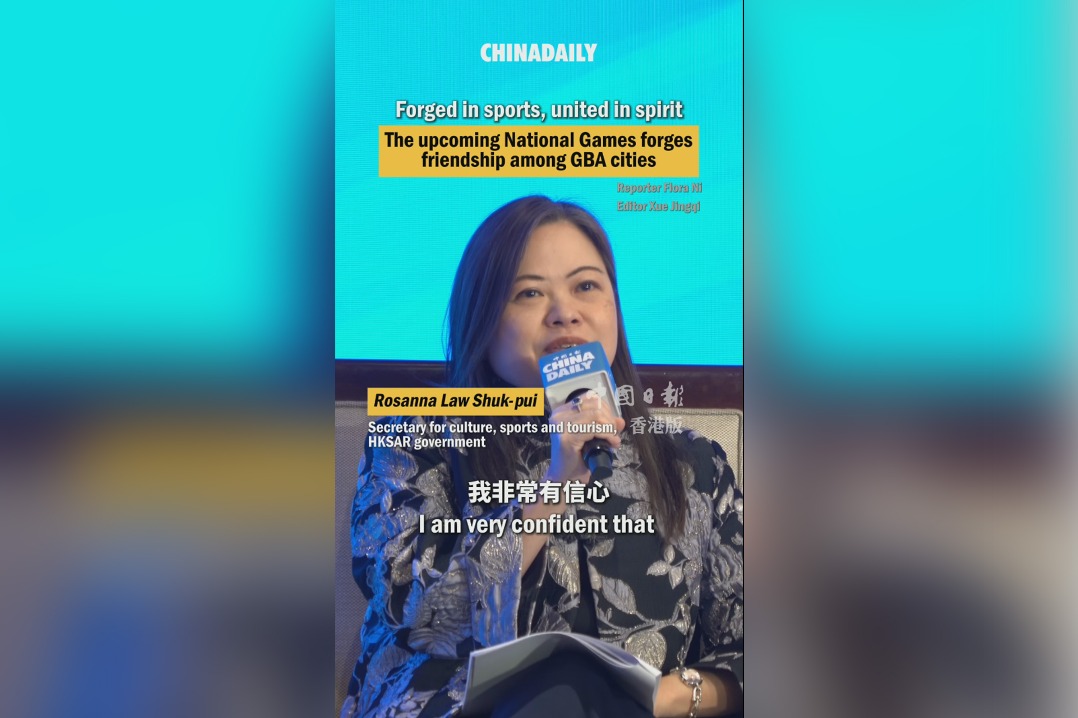From ancient lanes to historic crafts: Discovering Fuzhou

Where stories live
My exploration begins at Cangqian Street, where the hill meets the Minjiang River. Unlike Sanfang Qixiang's orderly lanes, Yantai Hill's paths spiral upward, each turn revealing new vistas — sometimes the sweeping river view, sometimes hidden designer boutiques tucked into stone staircases.
At Huanxi Chuo'o tea shop, owner Zheng Lingyi, who grew up in the neighborhood, prepares my olive-based drink — a local specialty — while sharing her insider's perspective.
"Most visitors stick to the commercial streets, but the real Yantai Hill starts from the back mountain where I attended school," she says.
"Those old cinemas and elementary schools tucked away in the lanes remain untouched by commercial development."
Her recommended route feels like a local's love letter to the neighborhood: beginning at Yantai Hill Park in the afternoon, winding past former consulates and churches, then descending to her shop in the evening.
What strikes me most is her description of Yantai Hill's unique grid-like layout of nine li (neighborhood units).
"It's like Sanfang Qixiang's lane system, but built into the hillside," she notes.
Standing on Cangqian Street, the sign for Huaji Grocery Shop stands out, attracting crowds taking photos of its front, which is filled with old items. Pushing open the door, I stumble into a treasure trove where time seems to stand still.
The 600-square-meter space serves as a platform connecting 300 illustrators and handicraft studios across China.
The owner Li Linghua impresses me by knowing all the craftspeople behind the assorted products, from handmade earrings and bracelets to woodblock paintings and costumes.
"These are avatar stamps drawn by our staff members," he says, looking content with the move to sell craft items made by his employees, as it offers customers something intimate and personal while increasing his employees' income.
When I reach a row of Western fairy-tale-style dolls, his tone becomes reverent. "These are samples from a friend's factory I've collaborated with for 19 years. Each one is unique. I don't want to sell them. They're just for display," he says.
As he enthusiastically shows me his cherished pieces — ceramic statues of historical figures, Western hand puppets, marionettes — I can see his collector's soul beneath the businessman's pragmatism.
The diverse array of bistros and restaurants promises to satisfy every palate. At Linzhong Xiaojiu bistro, fiery wok dishes arrive against the glittering Minjiang River backdrop, while traditional southern Fujian flavors can be found at the Nanmatang restaurant, with aromatic seafood congee complemented by vinegar-braised pork and delicate scallion buns.
I'm blown away by Zhiliao Kefei, a store hidden in a traditional courtyard house.
Sipping fruit-forward coffee amid displays of insect specimens and mineral collections, then trying my hand at their tie dye workshop, I find myself fully immersed in the neighborhood's unhurried rhythm and appreciating the art of slow living.
When I ask Zheng, the tea shop owner, about changes over time, her answer surprises me. "The mountain itself hasn't changed much."
Holding a magnetic bottle opener featuring Chinese characters hu jiu (tiger correction) — a playful nod to Fuzhou's local dialect (hu jiu pronounced in the local accent sounds like the city's name) — alongside a drink Zheng crafts from native ingredients, it dawns on me that these are more than tourism products. They are stories in physical form, each telling a part of Fuzhou's living narrative through the hands of people like Li and Zheng.
As dusk deepens near my hotel, the walls glow in sunset's embrace.
I couldn't help but think of Miao's words. From Bing Xin's, "Where there is love, there is everything", to Yan Fu's wisdom bridging Chinese and Western thoughts, these ancient dwellings not only preserve the city's historical context, but plant cultural seeds in every traveler who knocks on their doors.



















